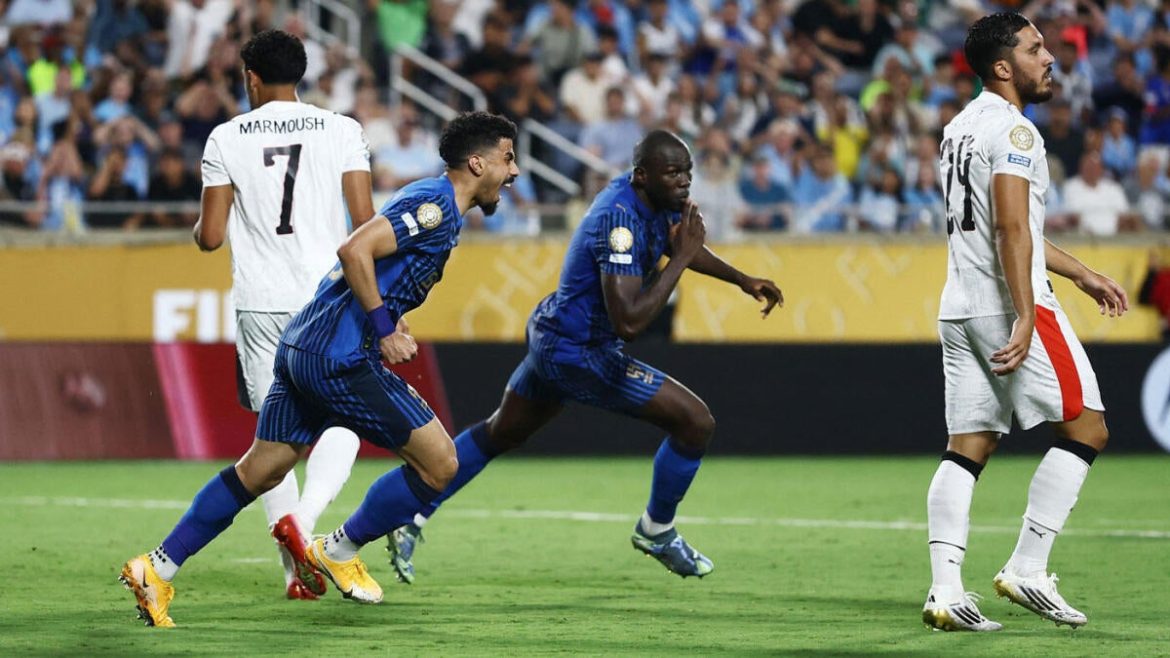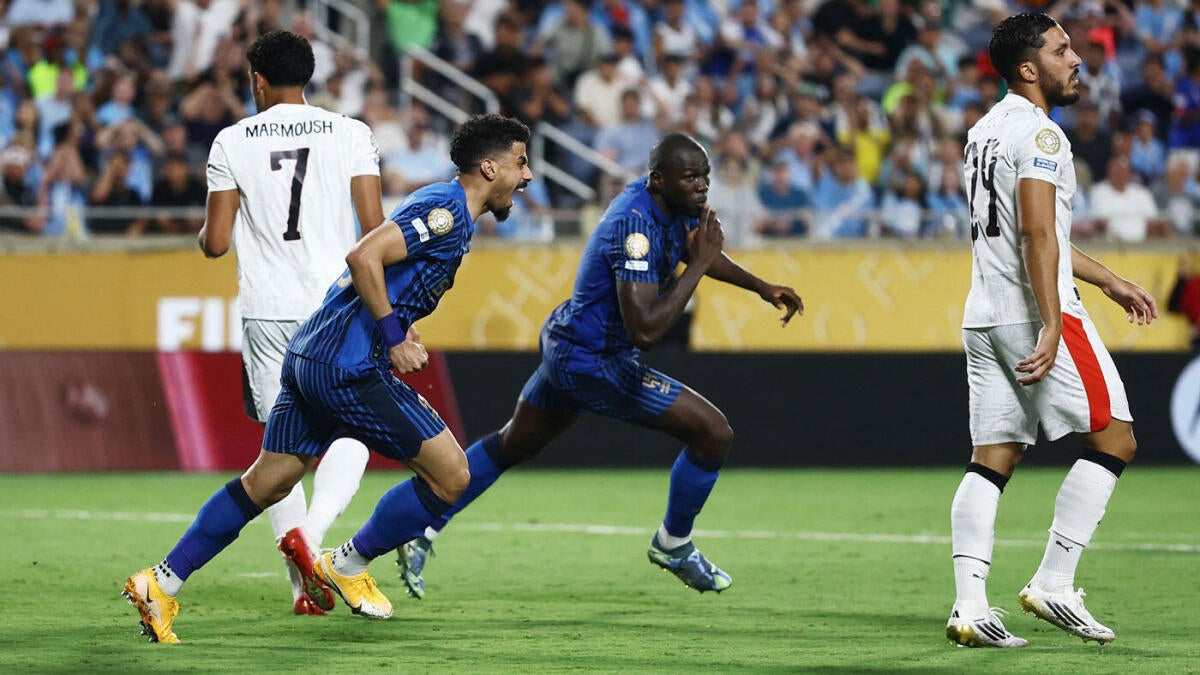The FIFA Club World Cup has long been a stage where football’s elite converge, but the 2025 edition delivered an unforgettable twist when Al-Hilal, the Saudi Arabian club, stunned the football world with a dramatic 4-3 victory over Manchester City in extra time. This historic upset, witnessed by a global audience in Orlando’s Camping World Stadium, transcends the confines of a single match, offering profound insights into the evolving landscape of global football.
A Match Defined by Drama and Resilience
The clash between Al-Hilal and Manchester City began with the English champions asserting early dominance. Bernardo Silva’s goal within the first ten minutes set the tone, but Al-Hilal refused to be intimidated. The Saudi side responded with relentless determination, turning the game into a rollercoaster of lead changes and momentum shifts. The match was a masterclass in unpredictability, with both teams trading blows until Marcus Leonardo’s decisive goal in the 112th minute sealed Al-Hilal’s victory.
Leonardo’s heroics in extra time were emblematic of Al-Hilal’s resilience and tactical discipline under manager Simone Inzaghi. The Italian tactician’s ability to instill a winning mentality and adapt to Manchester City’s pressure was crucial. Inzaghi’s strategic substitutions and tactical adjustments kept Al-Hilal in the game, proving that even against Europe’s elite, well-coordinated teamwork and mental fortitude can prevail.
A Turning Point for Al-Hilal and Saudi Football
Al-Hilal’s victory is a landmark moment for Saudi football, signaling the nation’s growing ambitions on the global stage. Often referred to as the “Real Madrid of Saudi Arabia,” Al-Hilal has long been a dominant force domestically, but this triumph elevates their status internationally. The win validates the Saudi Pro League’s rapid development, showcasing its potential to produce competitive clubs capable of challenging Europe’s best.
The victory also highlights Saudi Arabia’s strategic investments in football infrastructure, talent acquisition, and global visibility. With state-backed initiatives like the Saudi Pro League’s aggressive recruitment of high-profile players, the nation is positioning itself as a serious contender in world football. Al-Hilal’s success is a testament to these efforts, inspiring confidence among Saudi fans and attracting global attention to the region’s footballing ambitions.
For Al-Hilal, this victory is more than an upset—it is a milestone that could accelerate their aspirations in Asian and global competitions. The club’s ability to perform under pressure against a team of Manchester City’s caliber underscores their tactical sophistication and mental resilience. This triumph could serve as a catalyst for further growth, both in terms of player development and international recognition.
Manchester City’s Wake-Up Call
For Manchester City, the defeat is a sobering reminder of the challenges posed by emerging footballing powers. Pep Guardiola’s side, accustomed to dominance in domestic and European competitions, struggled to maintain control against Al-Hilal. The match exposed vulnerabilities in their defense and occasional lapses in concentration, particularly in crucial moments.
This early exit from the Club World Cup raises questions about squad rotation, tactical decisions, and potential fatigue from juggling multiple competitions. For a team that has set the benchmark in modern football, this loss serves as a humbling lesson in the unpredictability of the global game. It also underscores the importance of tournaments like the Club World Cup, which, despite being seen as secondary to domestic and European competitions, carry significant competitive weight.
From a broader perspective, this defeat could impact Manchester City’s morale in the ongoing season. As they navigate the Premier League title race and European ambitions, the psychological toll of this loss could influence their performance in other competitions. It is a reminder that even the most decorated teams must remain vigilant against rising challengers.
Tactical Mastery: How Al-Hilal Outmaneuvered Manchester City
Al-Hilal’s victory was not merely a product of luck but a result of tactical brilliance and disciplined execution. The Saudi side’s approach combined defensive organization with swift counterattacks and clinical finishing. Goalkeeper Yassine Bounou’s multiple saves were instrumental in keeping Manchester City at bay, while the defensive line held firm under relentless pressure.
Offensively, Al-Hilal demonstrated sharpness in transitions, capitalizing on Manchester City’s defensive lapses. Marcus Leonardo’s winning goal in extra time epitomized their opportunistic style, showcasing their ability to exploit weaknesses and maintain attacking intent throughout the match. Simone Inzaghi’s management was pivotal, balancing defensive solidity with offensive aggression and making timely substitutions that shifted momentum in Al-Hilal’s favor.
The Global Impact of the Upset
This historic victory has broader implications for the Club World Cup and global football. It dispels the notion that clubs from outside Europe or South America are mere participants, proving that emerging footballing nations can produce unforgettable moments. The tournament’s prestige is enhanced by such surprises, attracting global attention and inspiring other clubs to elevate their standards.
For governing bodies and sponsors, this match underscores the importance of investing in the Club World Cup’s growth and quality. As football continues to globalize, tournaments like these serve as vital proving grounds where underdogs can rise and legends are forged. Al-Hilal’s success may inspire other clubs from traditionally less dominant leagues to invest in talent development, coaching, and infrastructure, ultimately enriching the global football culture.
Conclusion: A Triumph of Ambition and Evolution
Al-Hilal’s 4-3 extra-time victory over Manchester City is more than just a match result—it is a testament to the evolving dynamics of global football. The triumph showcases the rise of Saudi football on the world stage, where ambition meets execution, and where traditional giants face new challengers demanding respect.
For Manchester City, this defeat is a moment of reflection, highlighting the challenges posed by a globalized sport where emerging clubs bring new levels of competition. For Al-Hilal and their supporters, the win is a historic milestone that signals a promising future.
As football continues to transcend borders, stories like these remind us why the beautiful game captivates audiences worldwide. The Club World Cup, fueled by such dramatic encounters, remains a vital platform where underdogs can rise and legends are made. This match will be remembered as a defining moment in football’s ongoing story of globalization and evolution.





